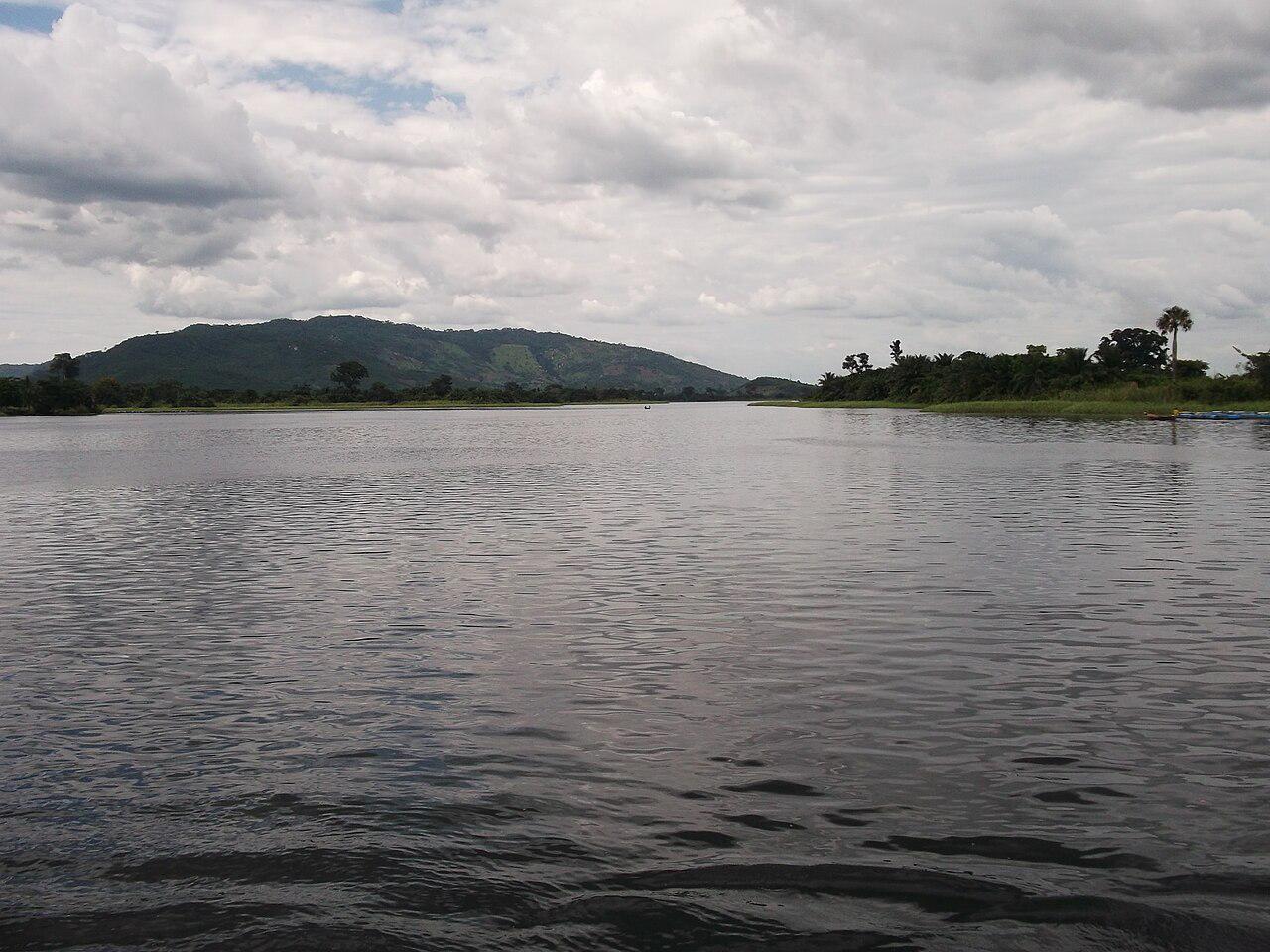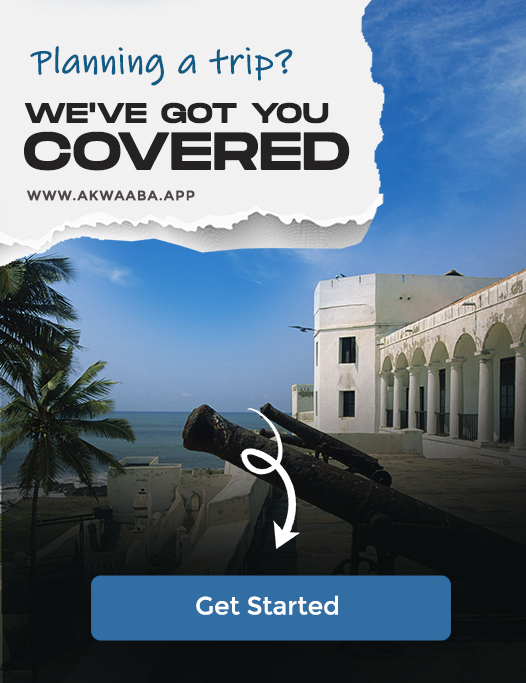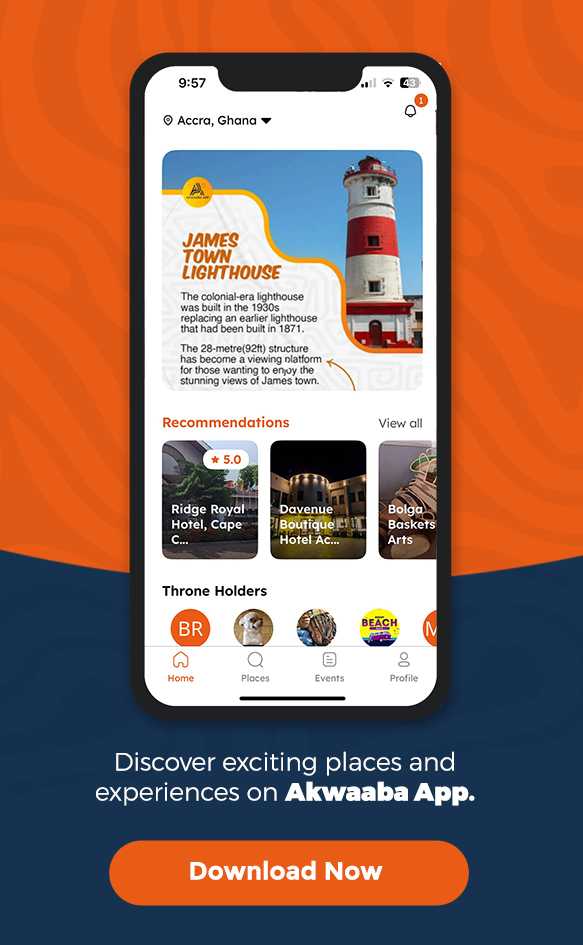Volta River, chief river system of Ghana, formed from the confluence of the Black Volta and White Volta headstreams. The Volta flows generally southward through Ghana, discharging into the Gulf of Guinea. Its major tributaries are the Afram and the Oti. The river system has a length of 1,000 miles (1,600 km), a drainage basin of 153,800 square miles (398,000 square km), and an average annual discharge of 42,700 cubic feet (1,210 cubic metres) per second. https://www.britannica.com/place/Volta-River
How to Get There?
By Road
The most popular way to get to the Volta River is by car. From Accra, you can drive east towards the town of Akosombo, which is about a 2-hour drive (approximately 100 km). Once in Akosombo, you’ll find access points to the river and nearby attractions like the Akosombo Dam.
By Public Transport
If you prefer not to drive, you can take a bus or shared minibus from Accra to Akosombo. These buses run regularly and are an affordable option for travelers on a budget. Once you arrive in Akosombo, taxis are available to take you to your destination along the river.
Experience on the Volta River
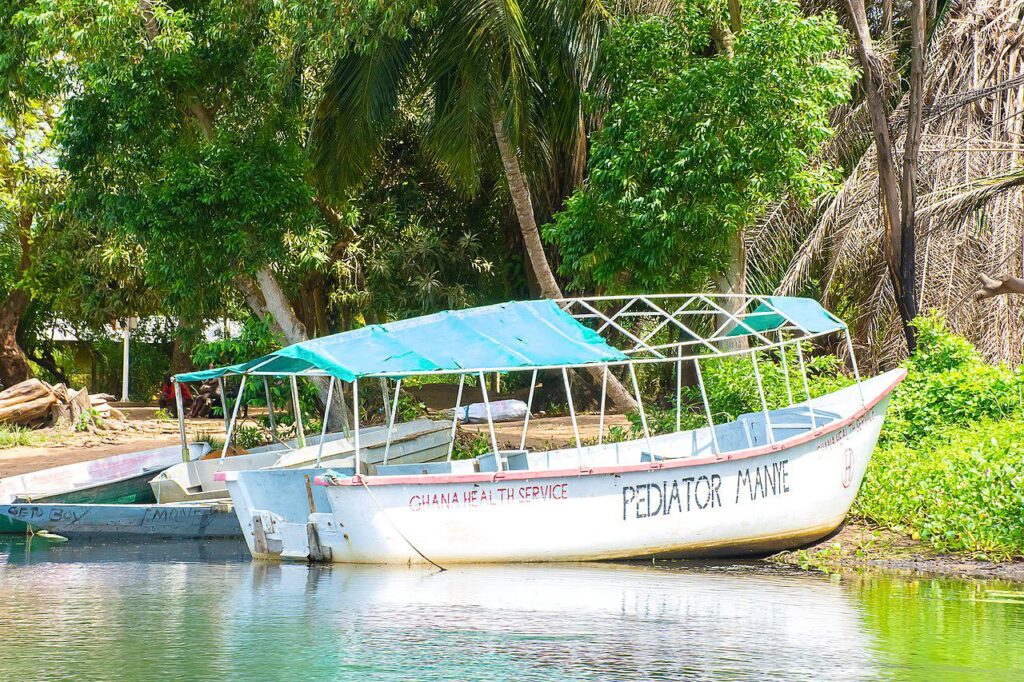
Boating
Enjoy a leisurely boat ride across the expansive Volta River, surrounded by breathtaking views of lush forests and scenic landscapes. Perfect for those looking to relax and take in the natural beauty of the area.
Kayaking
For a bit of adventure, hop in a kayak and paddle your way through the calm waters. It’s an exciting way to explore hidden corners of the river, all while enjoying a bit of exercise and the peace of nature.

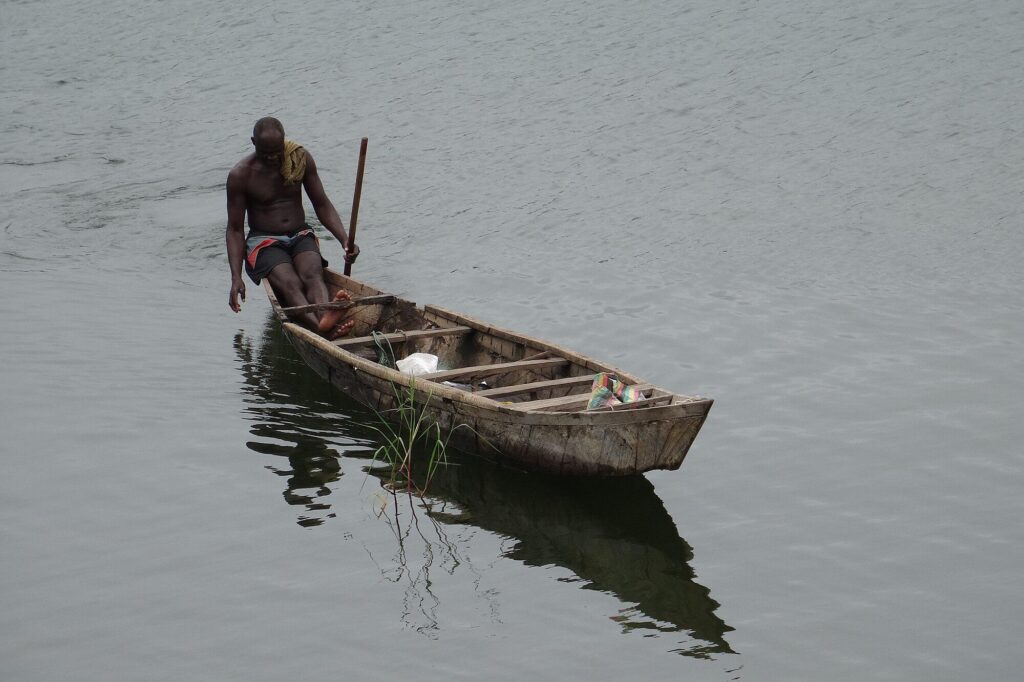
Fishing
The Volta River is a haven for anglers, offering a rich variety of fish. Whether you’re an experienced fisherman or just looking for a quiet spot to unwind, the river’s waters provide a great fishing experience.
Visiting Akosombo Dam
Don’t miss a trip to the Akosombo Dam—one of Ghana’s most impressive engineering feats. This iconic structure offers tours where you can learn about the hydroelectric power it generates and its role in the region’s economy.
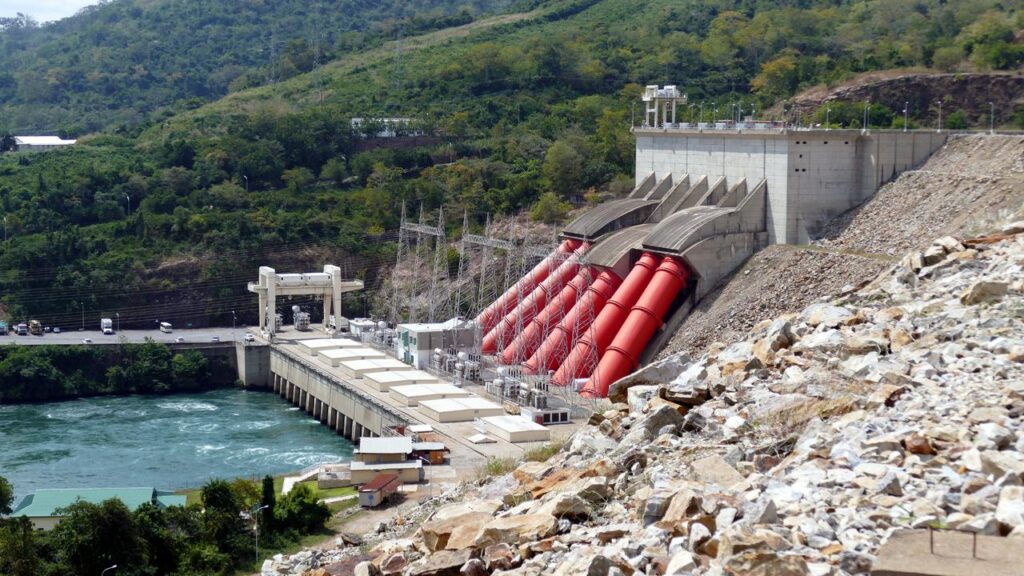
Cultural and Economic Importance
The Volta River is more than just a source of beauty it’s central to the cultural and economic life of the region. It powers Ghana’s hydroelectric plants, providing energy to millions of people. But it’s not just about power; the river sustains local livelihoods through fishing, farming, and tourism.
Hydroelectric Power Generation
The Volta River plays a crucial role in powering Ghana’s economy. The Akosombo Dam, built on the river, generates hydroelectric power that supplies electricity to millions of people across the country.
Livelihoods of Local Communities
For thousands of people living along the Volta River, it’s a source of livelihood. Fishing, farming, and trade thrive in the river’s surrounding areas. Many local families depend on the river for daily sustenance and income, making it vital for community survival.
Cultural Heritage and Traditions
The river is deeply embedded in the local cultures of communities along its banks. It is a symbol of life and is often featured in folklore, songs, and traditions passed down through generations. The river also hosts annual festivals and ceremonies that celebrate its importance in the local culture.
Tourism and Economic Growth
The Volta River contributes to the local economy through activities like boat tours, fishing trips, and visits to landmarks such as the Akosombo Dam. This has created job opportunities and helped develop nearby infrastructure, supporting local businesses and economies.
Agriculture and Irrigation
The river is also essential for agriculture in the region. It provides water for irrigation, especially in dry seasons, supporting crop cultivation and ensuring food security for many communities.
FAQs
Can you swim in the Volta River?
Swimming in the Volta River is generally not recommended for safety reasons. Some parts of the river, especially near Akosombo and the dam, have strong currents, and there may be hidden underwater hazards. However, there are specific areas along the river where controlled swimming might be possible, but it’s always best to check with local guides or authorities before taking a dip.
What is the best time to visit the Volta River?
The best time to visit the Volta River is during the dry season from November to March. During this time, the weather is more predictable, and outdoor activities such as boat tours, fishing, and birdwatching are more enjoyable. The cooler months offer clearer skies, better views, and ideal conditions for exploring the river’s natural beauty.
To make your visit to the Volta River even easier and more enjoyable, download the Akwaaba App! With Akwaaba, you can easily plan your trip, get local recommendations, book guided tours, and explore the natural beauty of Ghana, all at your fingertips.
Whether you’re looking for boating adventures, cultural insights, or local accommodations, Akwaaba has got you covered!
